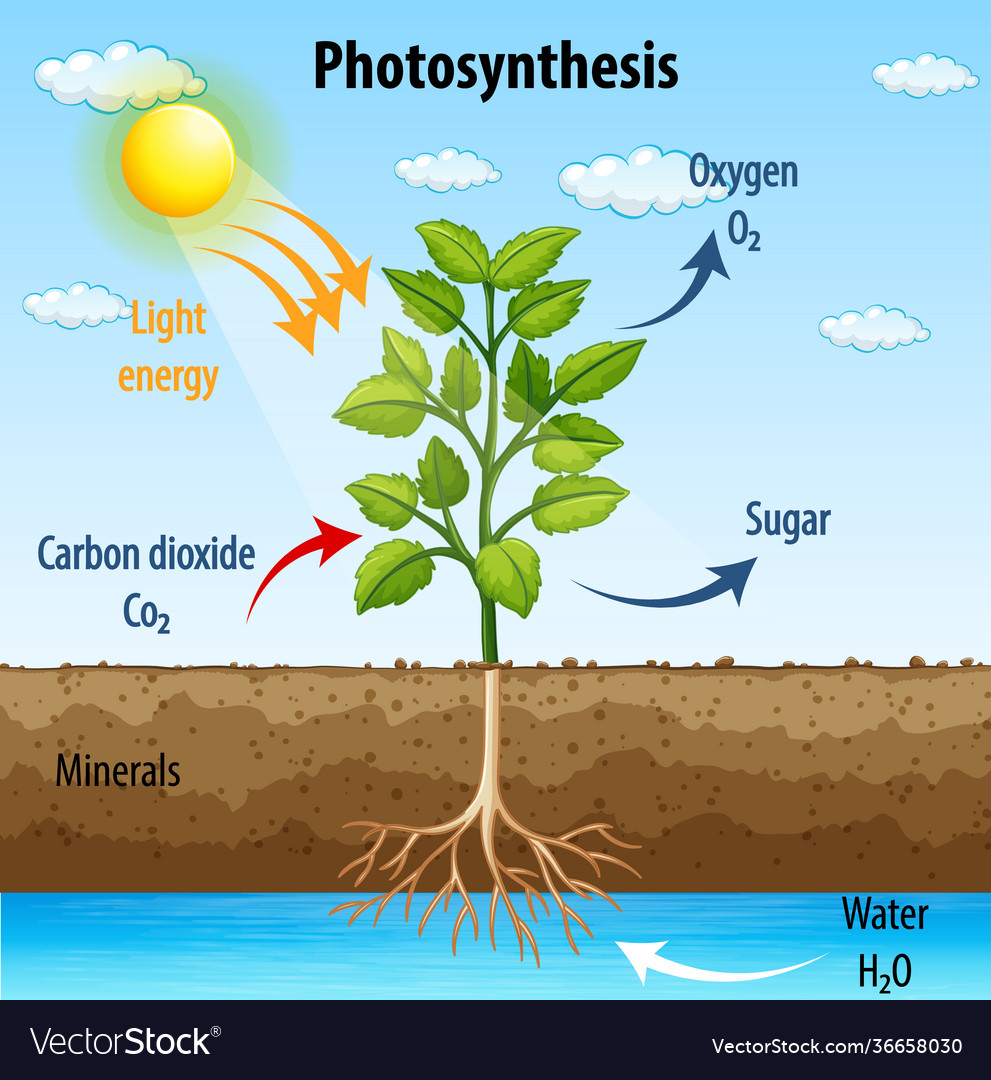
Diagram showing process photosynthesis in plant Vector Image
glucose (sugar) oxygen Here is the word equation for photosynthesis: Photosynthesis takes place inside chloroplasts which are small objects inside plant cells. Chloroplasts contain a green.

Describe the Basic Process of Photosynthesis JaidynhasMarshall
Creating a photosynthesis diagram is fairly simple and straightforward as long as you understand how the process works. Things become even simpler if you have an efficient and robust tool like EdrawMax to help you out. The step-by-step instructions on how to create a photosynthesis diagram in EdrawMax Online are given below:

Photosynthesis Diagram Process of Energy Transformation Edraw
6 CO2 + 6 H2O → (in the presence of sunlight) C6H12O6 + 6 O2 Photosynthesis Diagram According to the diagram of photosynthesis, the process begins with three most important non-living elements: water, soil, and carbon dioxide.

What Is Photosynthesis Diagram SIAWHT
Here is a general diagram of the cycle: CO 2 Regeneration. [See a diagram that shows the molecular structures] Carbon fixation. A CO 2 molecule combines with a five-carbon acceptor molecule, ribulose-1,5-bisphosphate ( RuBP ).
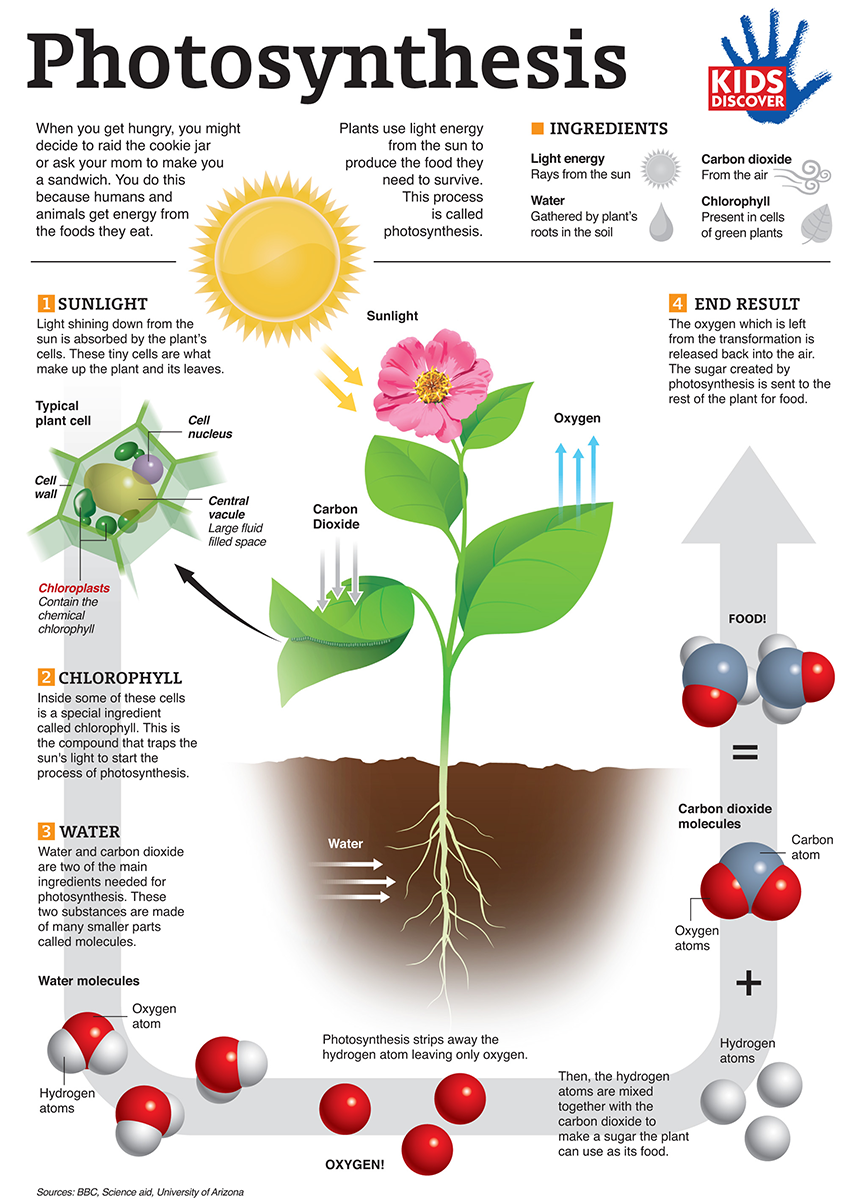
Lesson How Plants Make Food Photosynthesis BetterLesson
Each cell runs on the chemical energy found mainly in carbohydrate molecules (food), and the majority of these molecules are produced by one process: photosynthesis. Through photosynthesis, certain organisms convert solar energy (sunlight) into chemical energy, which is then used to build carbohydrate molecules.
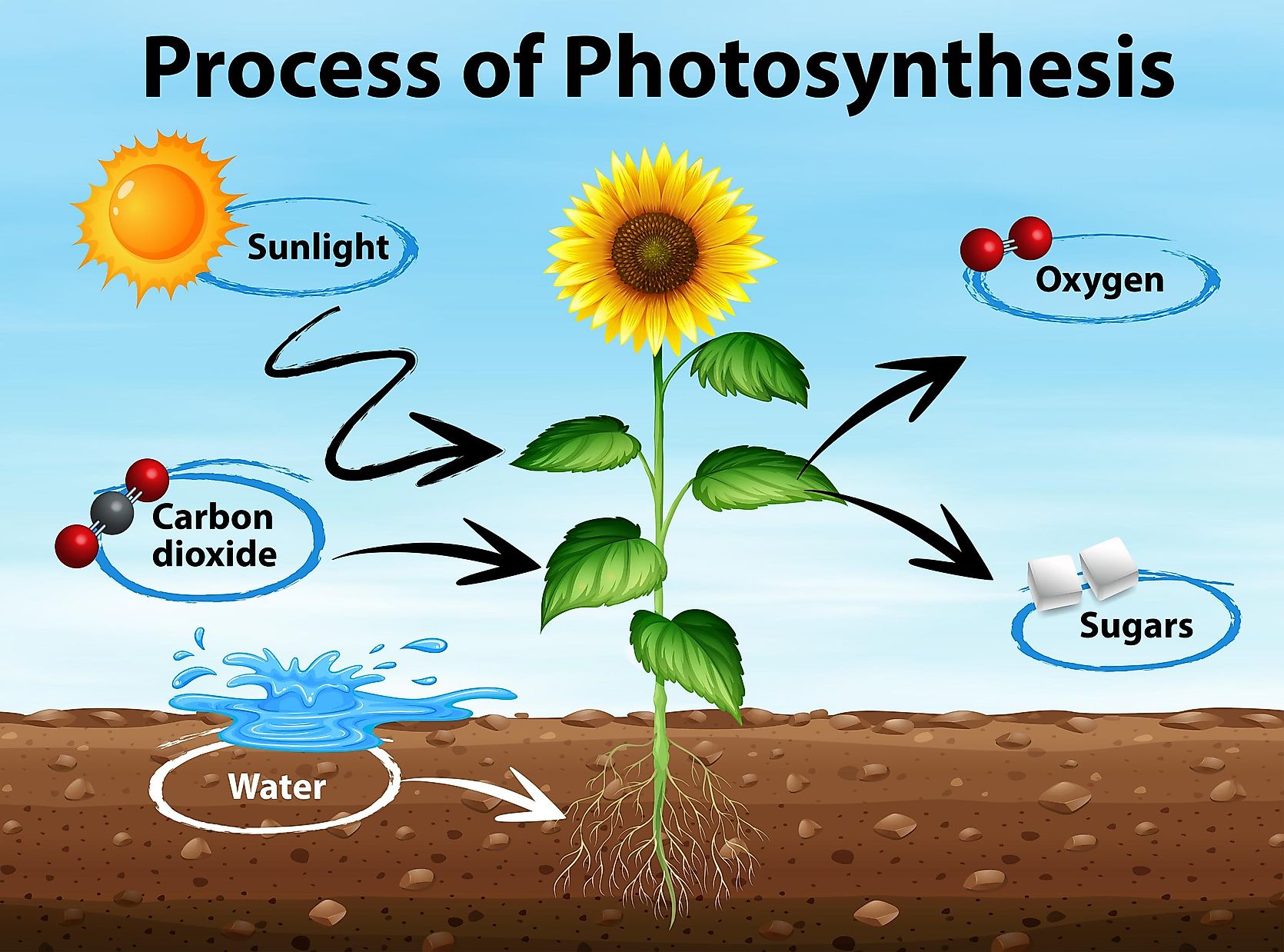
Photosynthesis Explained WorldAtlas
Photosynthesis is the process of turning light energy into chemical energy. This process uses a structure known as a chloroplast, an organelle inside of plant cells, to complete the two necessary.
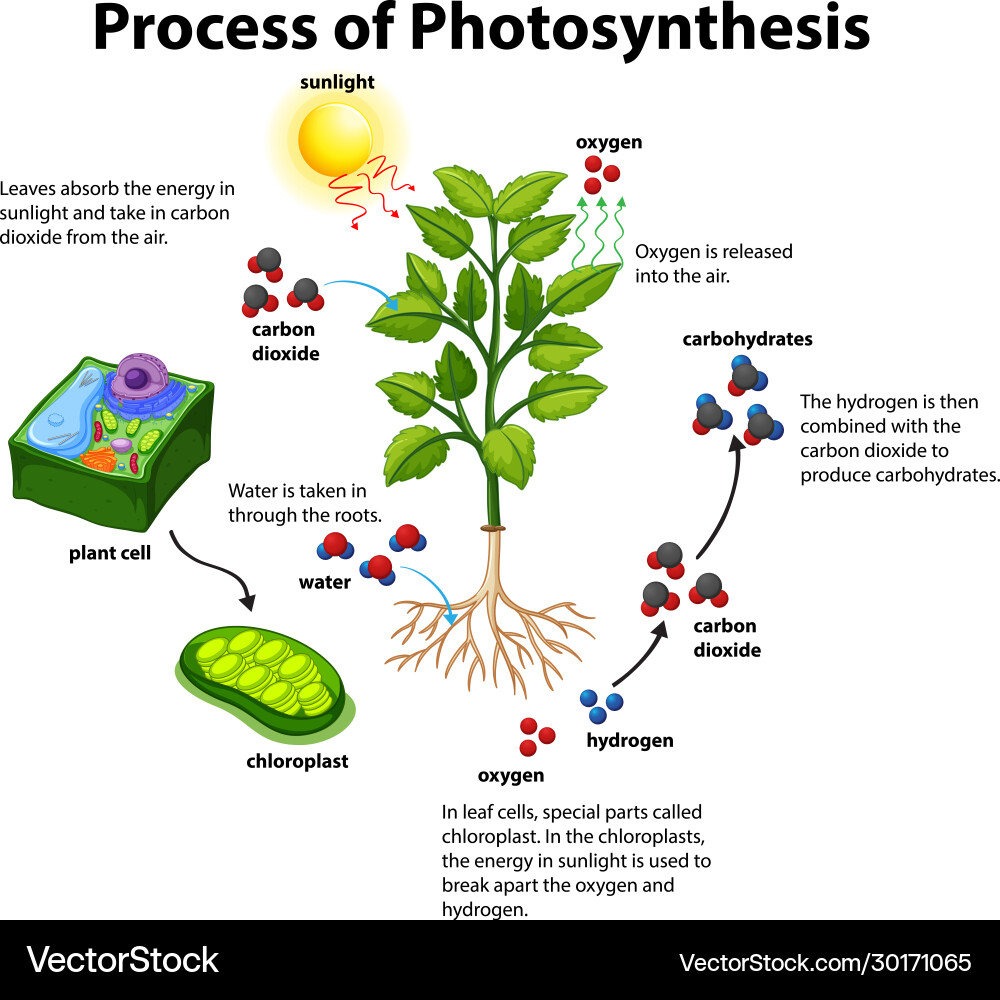
Diagram showing process photosynthesis Royalty Free Vector
Schematic of photosynthesis in plants. The carbohydrates produced are stored in or used by the plant. Composite image showing the global distribution of photosynthesis, including both oceanic phytoplankton and terrestrial vegetation. Dark red and blue-green indicate regions of high photosynthetic activity in the ocean and on land, respectively.

Photosynthesis Microbiology
Photosynthesis is the process in which light energy is converted to chemical energy in the form of sugars. In a process driven by light energy, glucose molecules (or other sugars) are constructed from water and carbon dioxide, and oxygen is released as a byproduct.
:max_bytes(150000):strip_icc()/GettyImages-944092980-819822c860ac4b1bb4c4b3a5170878ac.jpg)
What Are the Products of Photosynthesis?
This multipart animation series explores the process of photosynthesis and the structures that carry it out. Photosynthesis converts light energy from the sun into chemical energy stored in organic molecules, which are used to build the cells of many producers and ultimately fuel ecosystems. After providing an overview of photosynthesis, these.
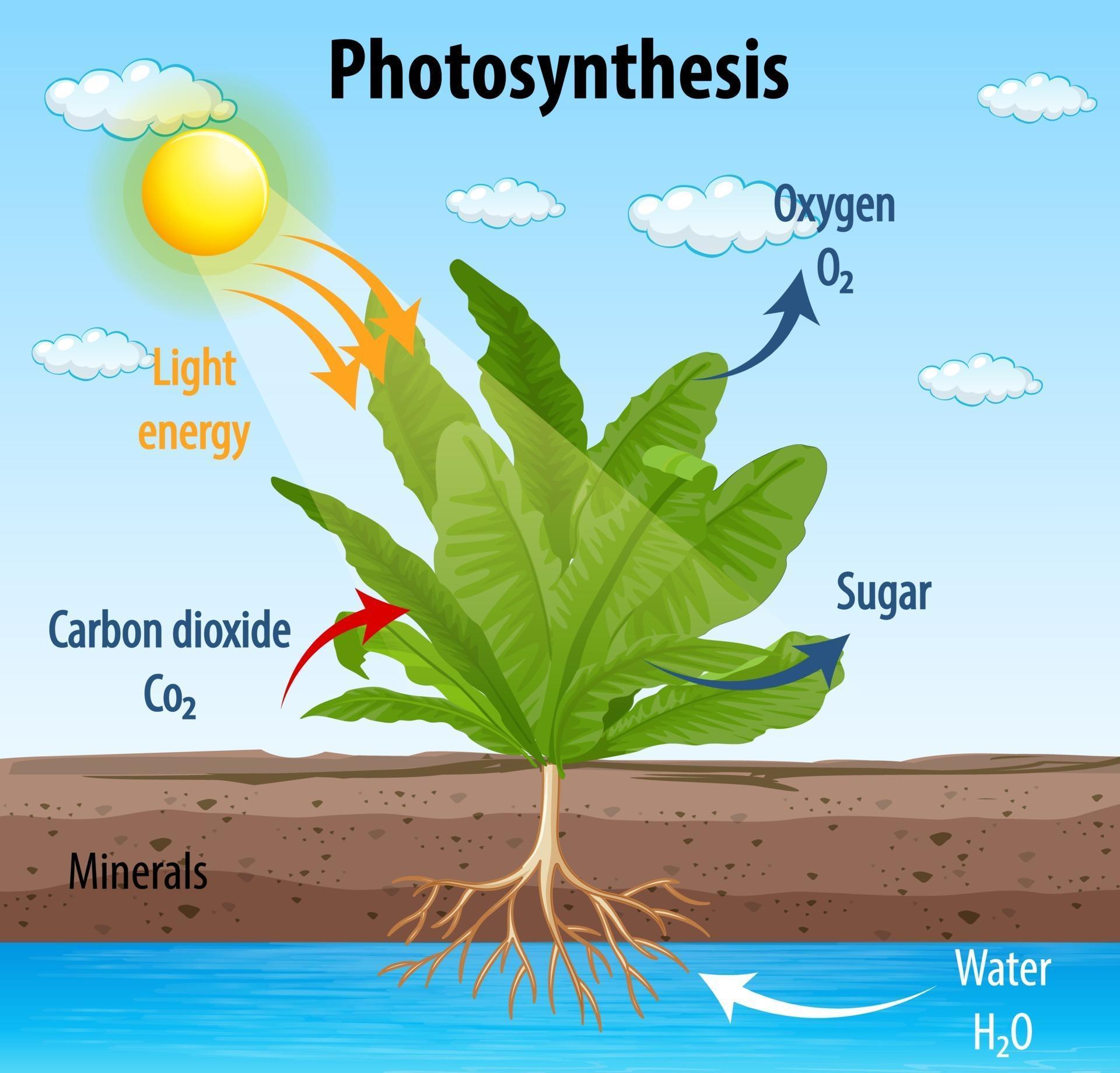
Diagram showing process of photosynthesis in plant 2686972 Vector Art
Figure 1: Photosynthetic plants synthesize carbon-based energy molecules from the energy in sunlight. Consequently, they provide an abundance of energy for other organisms. Plants exist in a wide.

A Simple Diagram of Photosynthesis
Here are the basic steps: Light absorption in PSII. When light is absorbed by one of the many pigments in photosystem II, energy is passed inward from pigment to pigment until it reaches the reaction center. There, energy is transferred to P680, boosting an electron to a high energy level.
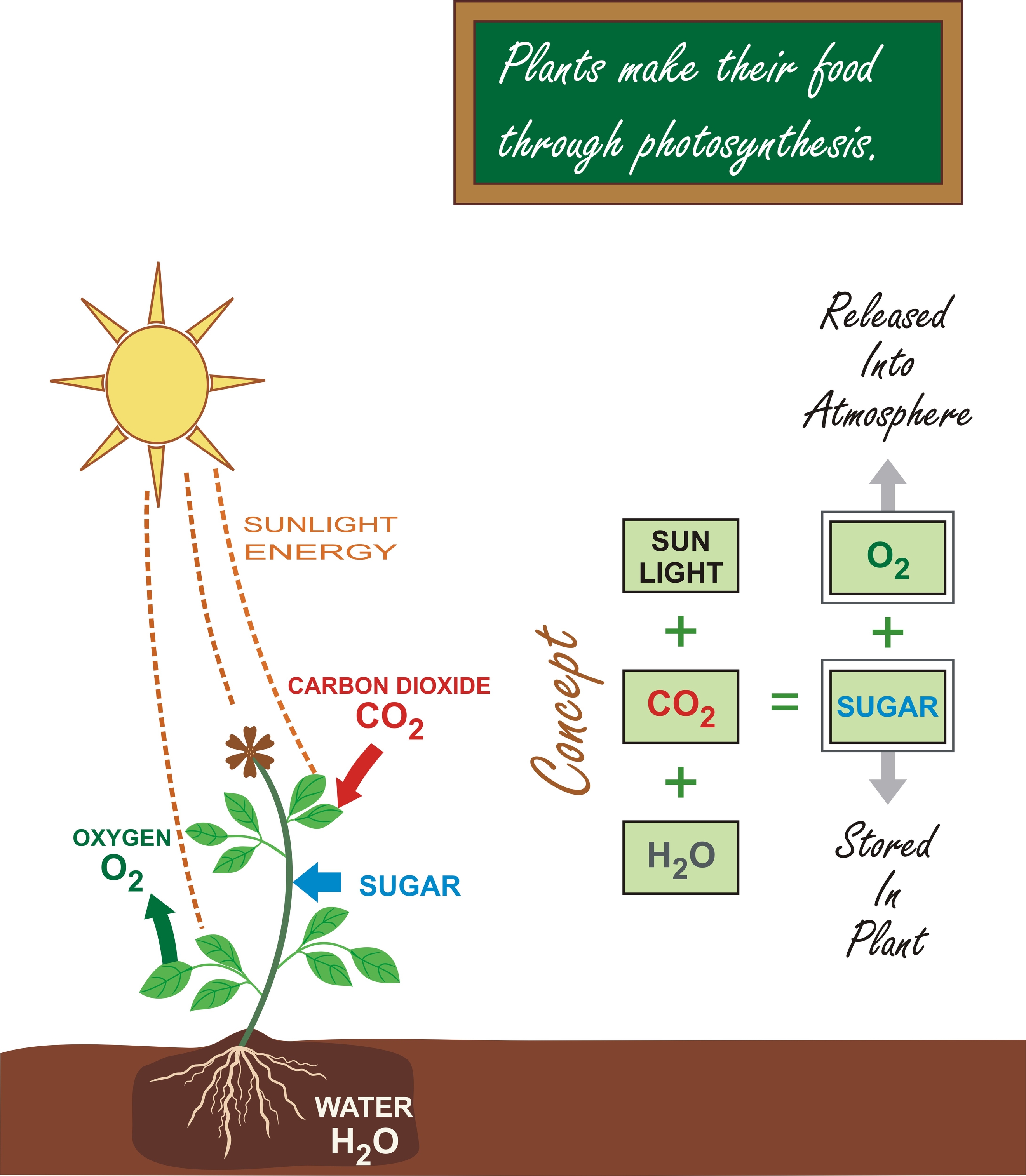
Photosynthesis
In chemical terms, photosynthesis is a light-energized oxidation-reduction process. (Oxidation refers to the removal of electrons from a molecule; reduction refers to the gain of electrons by a molecule.) In plant photosynthesis, the energy of light is used to drive the oxidation of water (H 2 O), producing oxygen gas (O 2 ), hydrogen ions (H.
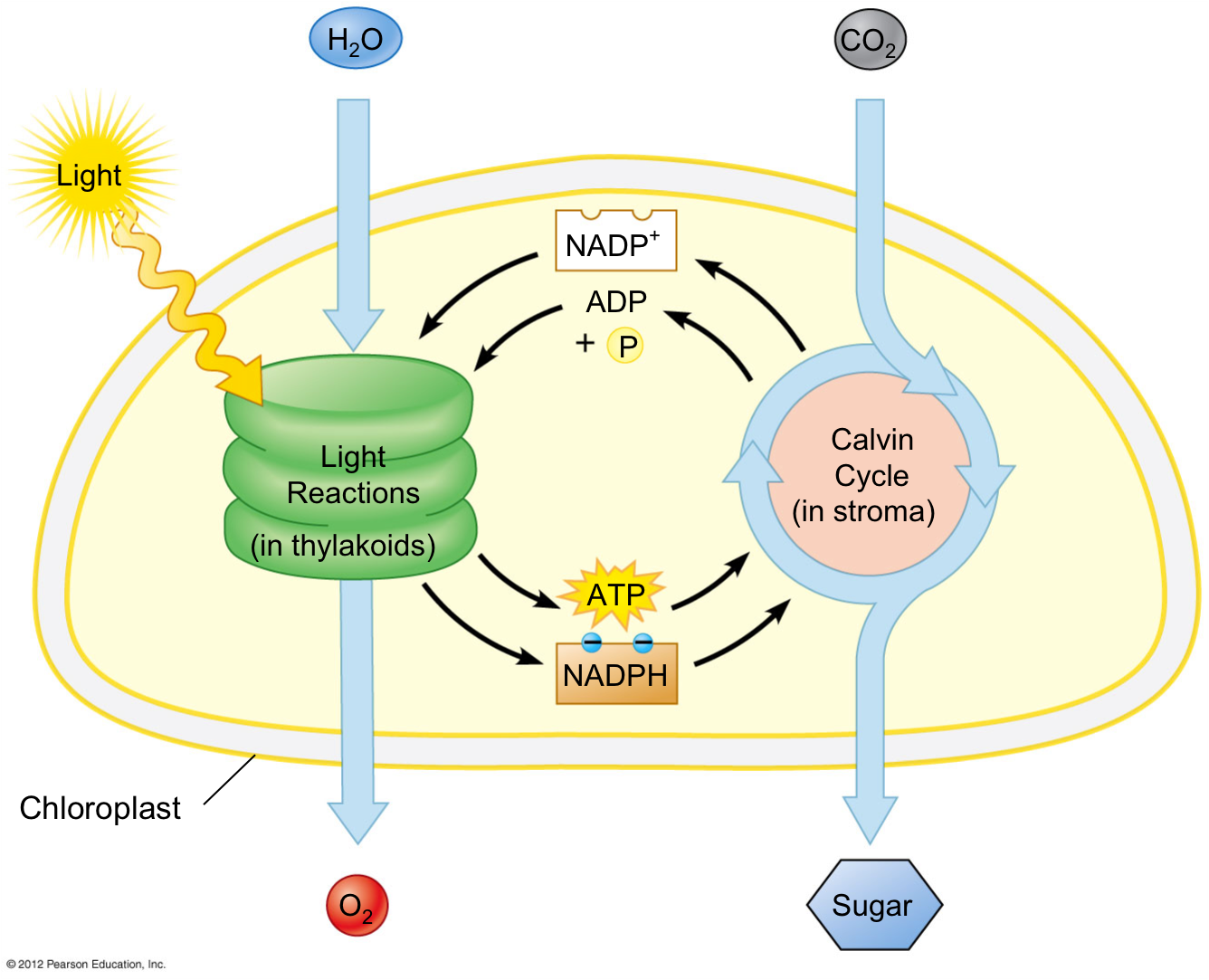
Overview Of Photosynthesis A Level Biology Notes
Photorespiration: C3, C4, and CAM plants. The Calvin cycle enzyme rubisco is essential.but it also has a bad habit. Rubisco sometimes acts on oxygen rather than carbon dioxide, leading to a carbon-wasting side process called photorespiration. Learn about the strategies C4 and CAM plants use to minimize photorespiration.
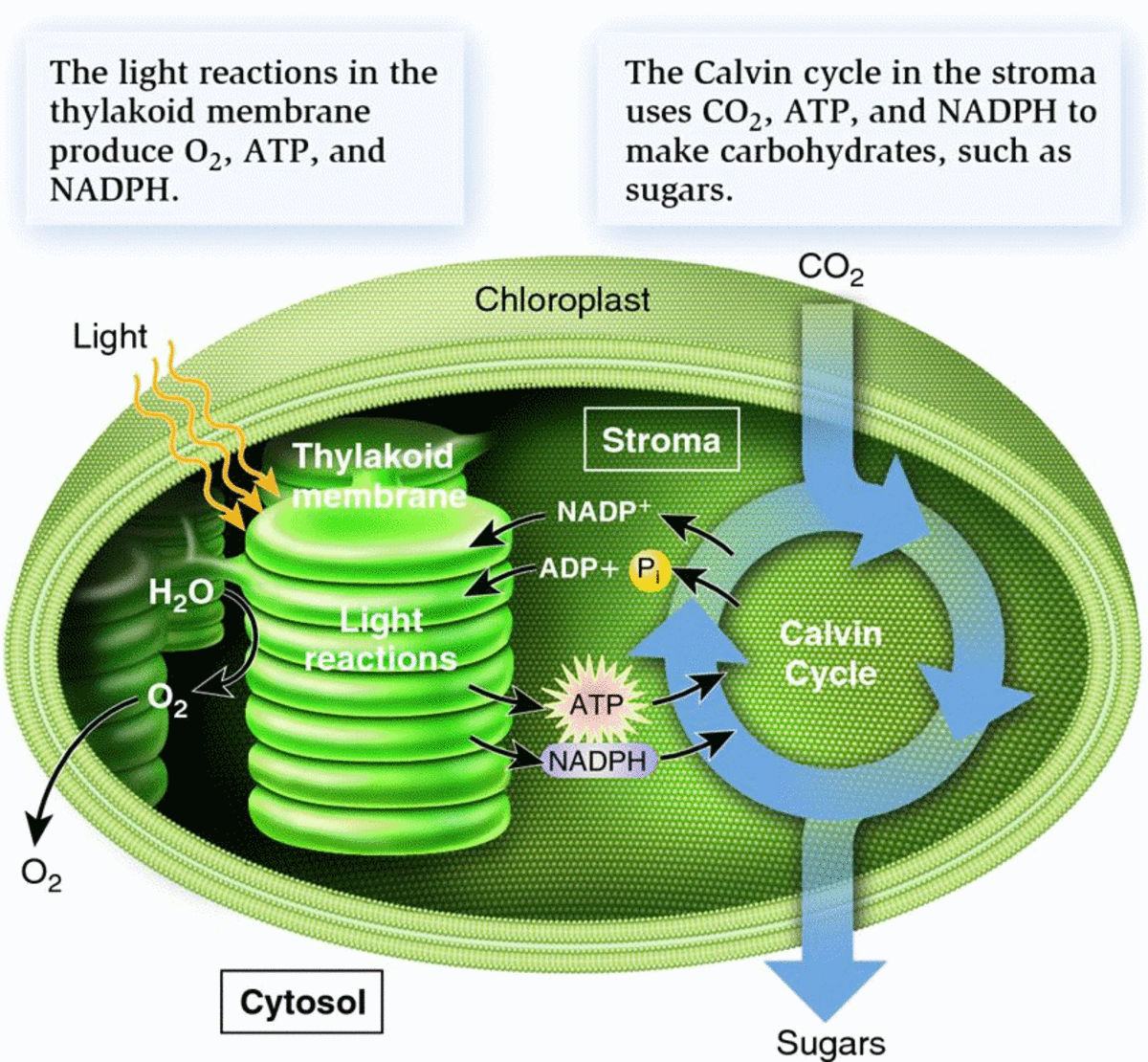
What is Photosynthesis Light Reaction, Dark Reaction, and Significance
What is Photosynthesis? Photosynthesis equations/reactions/formula Carbon dioxide + Water + solar energy → Glucose + Oxygen 6CO2 + 6H2O + solar energy → C6H12O6 + 6O2 Carbon dioxide + Water + solar energy → Glucose + Oxygen + Water 6CO2 + 12H2O+ solar energy → C6H12O6 + 6O2 + 6H2O CO2 + 2H2S + light energy → (CH2O) + H2O + 2S
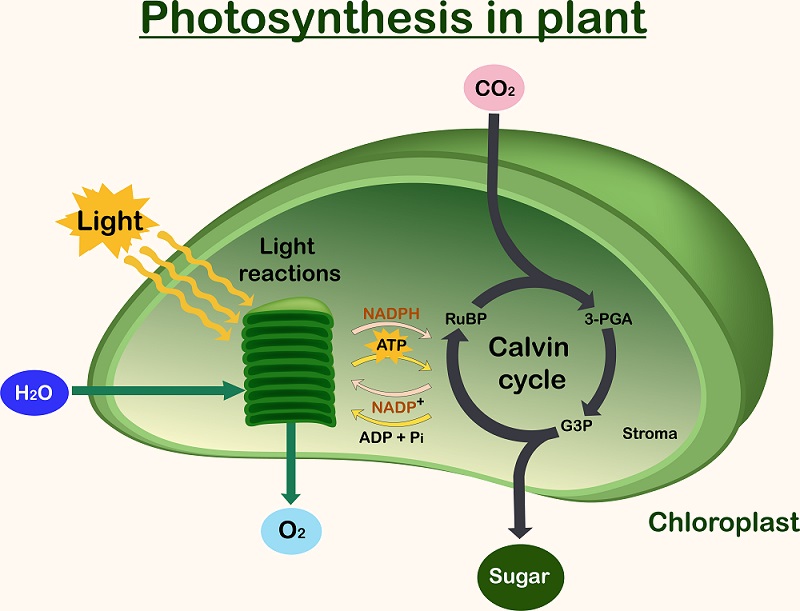
[LS15] Photosynthesis Modeling Biology Dictionary
Photosynthesis is a continuous process. It takes place in the Chloroplasts present in the plants. Chloroplasts are double membraned organelles present in plants and green algae. Chloroplasts are also found in many plant-like protists that can undergo Photosynthesis in the presence of light. For example, Euglena.

Diagram showing process of photosynthesis in plant 1858779 Vector Art
Key points: Many organisms make their own food through photosynthesis. Plants, algae, and some unicellular organisms do photosynthesis. Photosynthesis is powered by energy from sunlight. This energy is used to rearrange atoms in carbon dioxide and water to make oxygen and sugars. Carbon dioxide and water are inputs of photosynthesis.